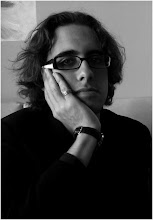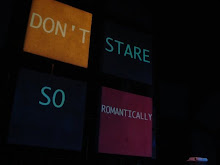1. What drew you to Hamletmachine?
My interest in Hamletmachine is two-fold. First, I am drawn to the play as a timely representation of the world around us. Müller retells the story of Shakespeare’s uncertain Hamlet, one of the mythologies of our culture, on the ruined shores of Western civilization beset by terrorism. In addition, Müller allows for a multiplicity of performance possibilities within this compact yet open text. The manner of performing Hamletmachine resides with its director, performers, and designers, rather than solely in Müller’s script.
2. I read your translation and I enjoyed the subtle differences between yours and the Carl Weber version; tell me about the translation process. Was it your first time? What kind of work went into the project? What was the collaboration process like with Katrin Dettmer?
Two different published translations exist of Hamletmachine: one by Carl Weber, the other by Marc von Henning. They both have their own strengths and weaknesses. However, when presented with this project, my dramaturg Katrin Dettmer and I thought that a new translation was needed for this performance by young American actors. In our translation from the German, we strove to write in an English that was neither awkward nor that lost the power of Müller’s language in an attempt to be colloquial. Katrin was wonderful to work with. As a Berliner, she was able to provide her knowledge of the many nuances of the German language, while I provided my knowledge of playwriting. This new translation is both precise and poetic. I would like to think that Müller would have approved.
3. Have you seen other productions of Hamletmachine? How is your vision influenced by previously produced versions? Where do you make your departures?
Yes, I have seen three other productions of Hamletmachine. Four years ago, I first saw filmed documentation of Robert Wilson’s 1986 production from Hamburg’s Thalia Theater with young West German actors. Then this past summer, I spent two months at Berlin’s exhaustive theatre archives at the Akademie der Künste. There I watched film documentation of performances and rehearsals for Müller’s own production at East Berlin’s Deutsches Theater, which premiered after the fall of the Wall in 1990. Most recently, I was invited to attend Dimiter Gotscheff’s rehearsals for the newest production of Hamletmachine at the aforementioned Deutsches Theater; this performance premiered in the fall of 2007. These productions, along with the Einstürzende Neubauten radio play version and Wolfgang Rihm’s opera, show the many effective ways of directing this play. In my own production, I have occasionally quoted these past performances but the structure is different. For one, I have included other outside texts by Müller, Shakespeare, and others in order to comment on and resist the original Hamletmachine text. Also, Müller once stated in 1986 “if you don’t come to grips with Hamletmachine as a comedy, you won’t make anything out of this play.” While other productions have been ironic, I think this performance has reached the often-overlooked humor of Müller’s work with a mixture of both the bitterly comic existing alongside the brutality of contemporary life.
4. What excites you most about directing this play?
The excitement of directing Hamletmachine lies in a text that resists the possibility of performance, where theatrical elements are in conflict with one another, and the senses of the audience are bombarded with information. For the majority of those working on this production, Hamletmachine is the first time they are encountering a theatre piece that unbalances the ideas of drama, a narrative with conflict and resolution, etc. This venture into the new is exciting.
My interest in Hamletmachine is two-fold. First, I am drawn to the play as a timely representation of the world around us. Müller retells the story of Shakespeare’s uncertain Hamlet, one of the mythologies of our culture, on the ruined shores of Western civilization beset by terrorism. In addition, Müller allows for a multiplicity of performance possibilities within this compact yet open text. The manner of performing Hamletmachine resides with its director, performers, and designers, rather than solely in Müller’s script.
2. I read your translation and I enjoyed the subtle differences between yours and the Carl Weber version; tell me about the translation process. Was it your first time? What kind of work went into the project? What was the collaboration process like with Katrin Dettmer?
Two different published translations exist of Hamletmachine: one by Carl Weber, the other by Marc von Henning. They both have their own strengths and weaknesses. However, when presented with this project, my dramaturg Katrin Dettmer and I thought that a new translation was needed for this performance by young American actors. In our translation from the German, we strove to write in an English that was neither awkward nor that lost the power of Müller’s language in an attempt to be colloquial. Katrin was wonderful to work with. As a Berliner, she was able to provide her knowledge of the many nuances of the German language, while I provided my knowledge of playwriting. This new translation is both precise and poetic. I would like to think that Müller would have approved.
3. Have you seen other productions of Hamletmachine? How is your vision influenced by previously produced versions? Where do you make your departures?
Yes, I have seen three other productions of Hamletmachine. Four years ago, I first saw filmed documentation of Robert Wilson’s 1986 production from Hamburg’s Thalia Theater with young West German actors. Then this past summer, I spent two months at Berlin’s exhaustive theatre archives at the Akademie der Künste. There I watched film documentation of performances and rehearsals for Müller’s own production at East Berlin’s Deutsches Theater, which premiered after the fall of the Wall in 1990. Most recently, I was invited to attend Dimiter Gotscheff’s rehearsals for the newest production of Hamletmachine at the aforementioned Deutsches Theater; this performance premiered in the fall of 2007. These productions, along with the Einstürzende Neubauten radio play version and Wolfgang Rihm’s opera, show the many effective ways of directing this play. In my own production, I have occasionally quoted these past performances but the structure is different. For one, I have included other outside texts by Müller, Shakespeare, and others in order to comment on and resist the original Hamletmachine text. Also, Müller once stated in 1986 “if you don’t come to grips with Hamletmachine as a comedy, you won’t make anything out of this play.” While other productions have been ironic, I think this performance has reached the often-overlooked humor of Müller’s work with a mixture of both the bitterly comic existing alongside the brutality of contemporary life.
4. What excites you most about directing this play?
The excitement of directing Hamletmachine lies in a text that resists the possibility of performance, where theatrical elements are in conflict with one another, and the senses of the audience are bombarded with information. For the majority of those working on this production, Hamletmachine is the first time they are encountering a theatre piece that unbalances the ideas of drama, a narrative with conflict and resolution, etc. This venture into the new is exciting.
(January 27, 2008)










